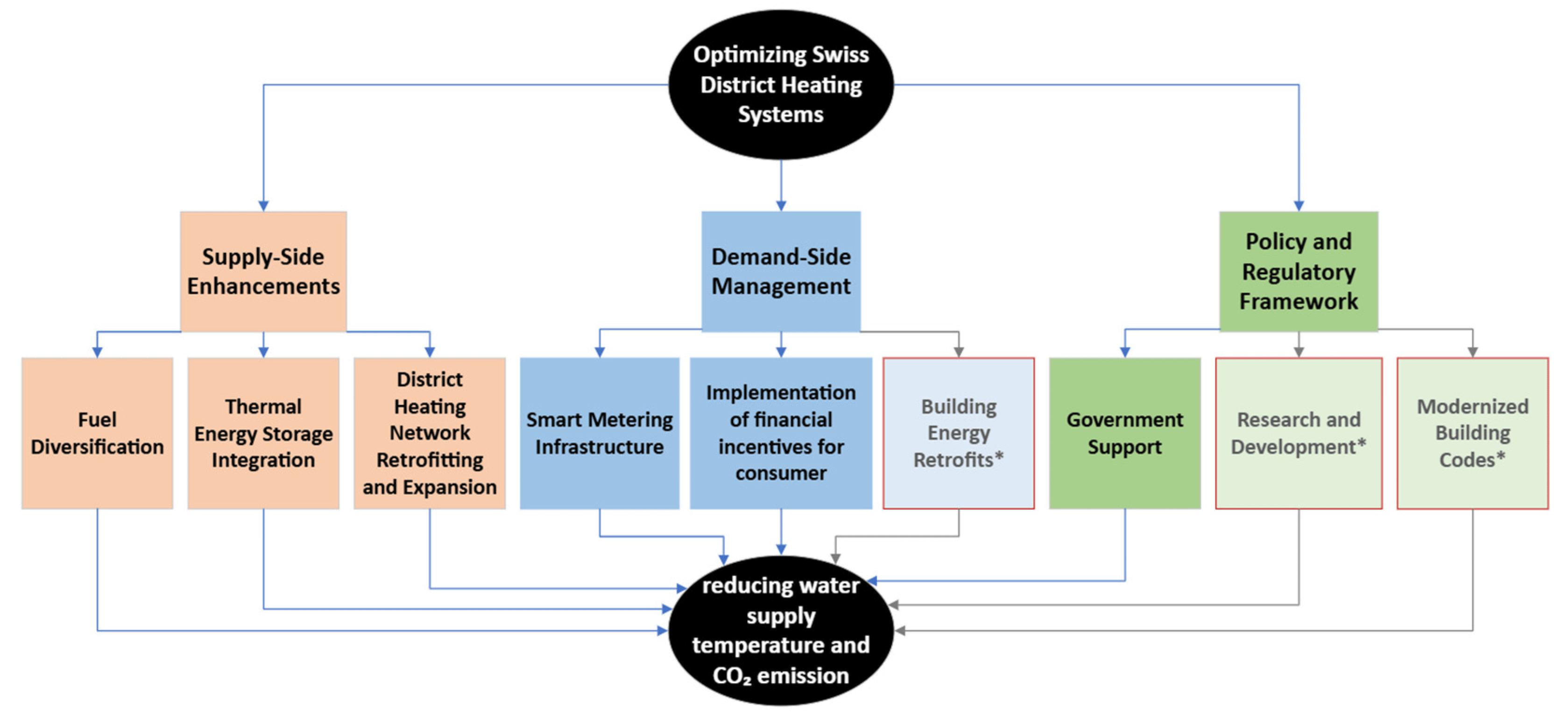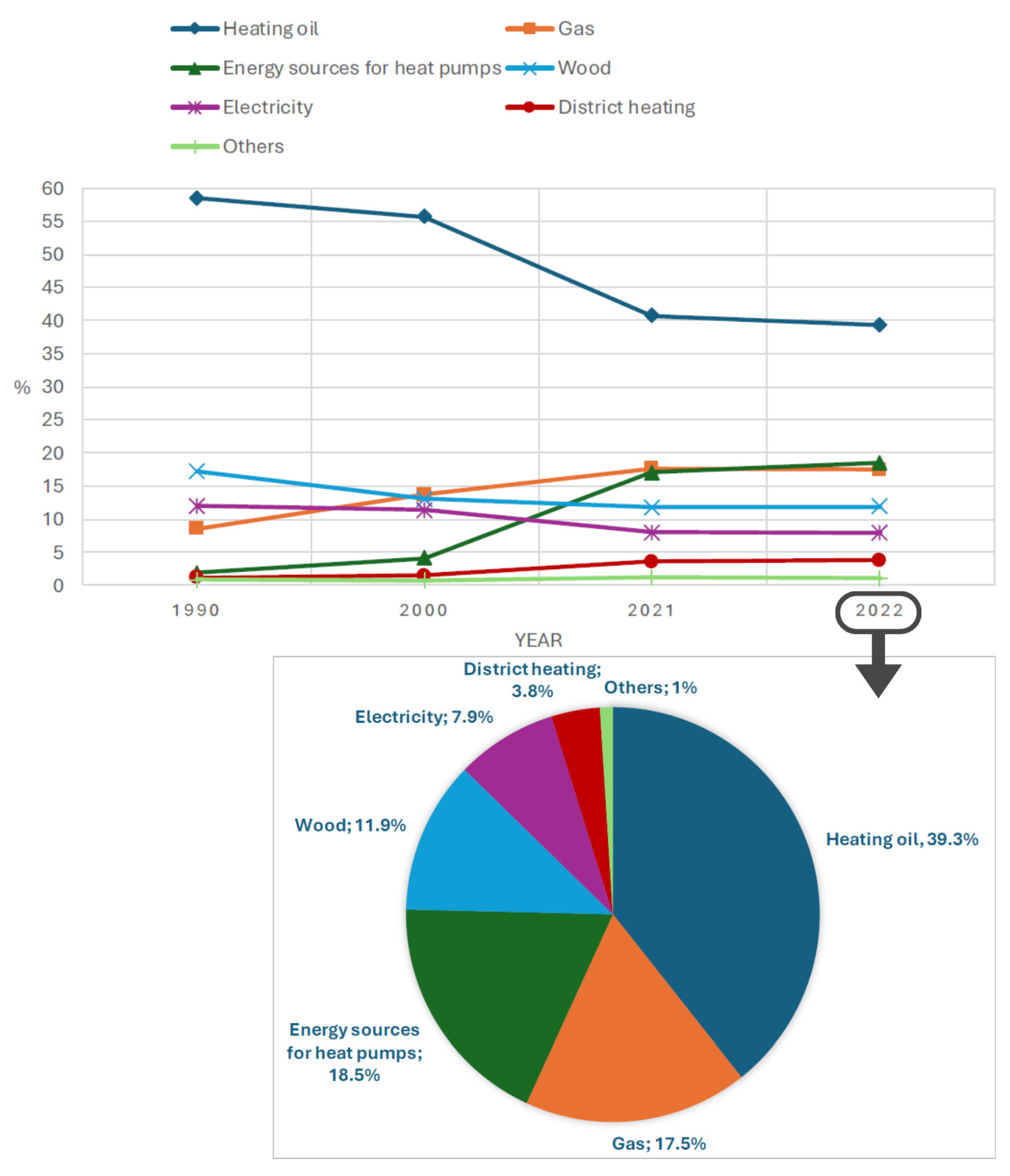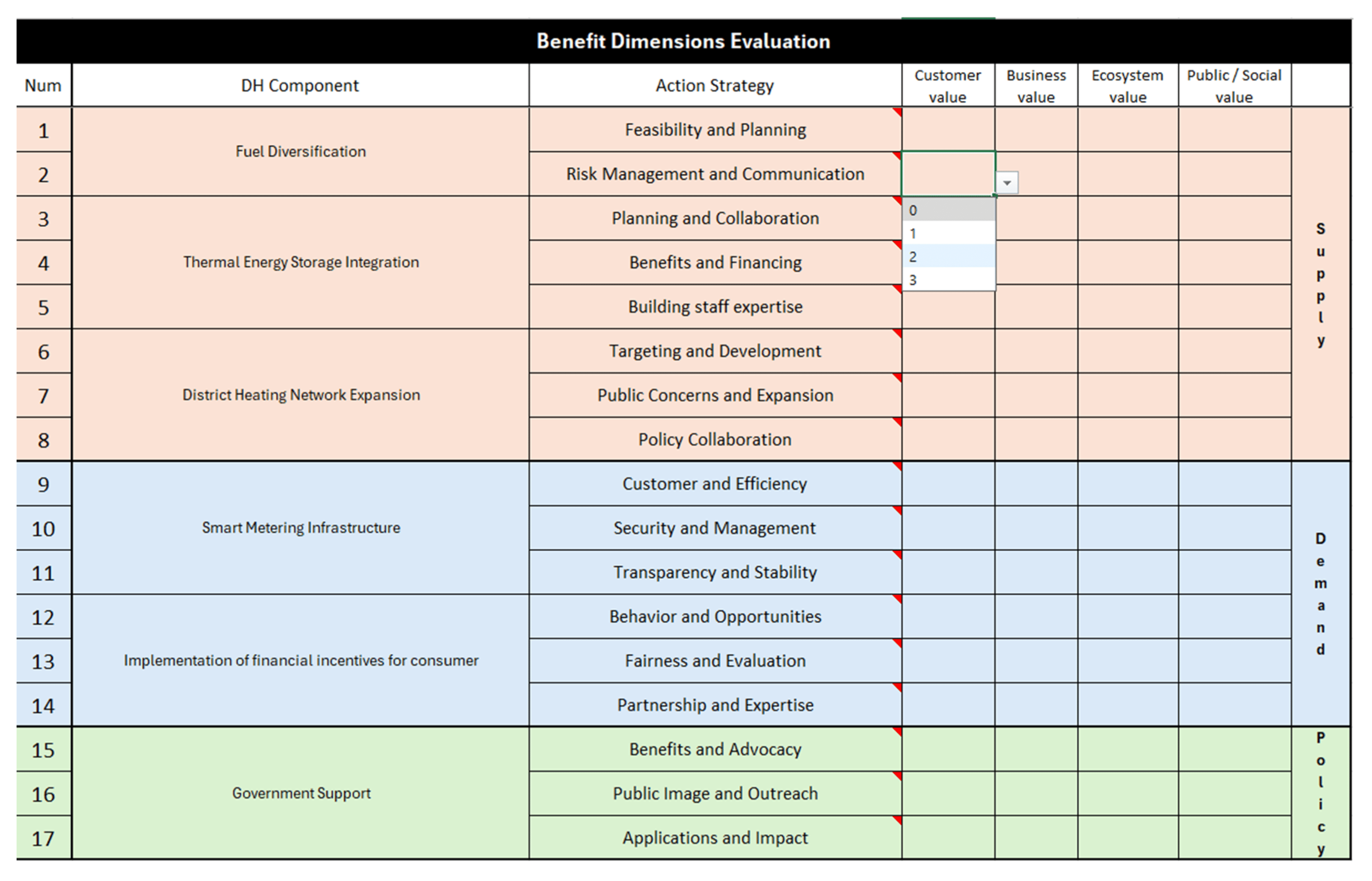This study explores modernization strategies for existing district heating (DH) networks to enhance their efficiency and sustainability, focusing on achieving net-zero emissions in urban heating systems. Building upon a literature review and expert interviews, a strategic decision-support framework was developed that outlines distinct strategies for retrofitting district heating grids and includes a portfolio analysis.
Three main keypoints:
- Strategic Decision-Support Framework for DH Modernization: The study presents a decision-support framework developed from literature and expert insights to guide district heating (DH) operators in selecting tailored modernization strategies that balance technical, economic, and social factors.
-
Key Measures for Sustainable DH Systems:
Promising measures identified include lowering operational temperatures, integrating renewable and waste heat, using thermal energy storage, deploying smart technologies, and expanding networks with stakeholder engagement and policy support. -
No silver bullet for DH modernization:
A successful modernization strategy depends strongly on local conditions: the state of existing infrastructure, public policy goals and the utility's capabilities all determine which combination of measures is suitable. The developed moderation tool helps collect and contrast different stakeholders' expectations of the impact of such measures.
Keywords:
district heat (DH); retrofitting; modernization strategies; TOWS analysis; portfolio analysis; fuel diversification; thermal energy storage; smart metering; net-zero emissions
Corresponding authors:
Institute for Sustainable Development, ZHAW Zurich University of Applied Sciences, Technoparkstrasse 2, 8401 Winterthur, Switzerland
- Reza Bahadori, bahadrez@students.zhaw.ch
- Matthias Speich, matthias.speich@zhaw.ch
- Silvia Ulli-Beer, silvia.ulli-beer@zhaw.ch


